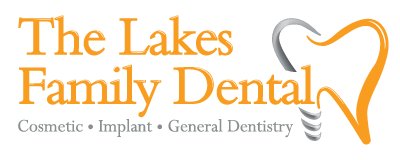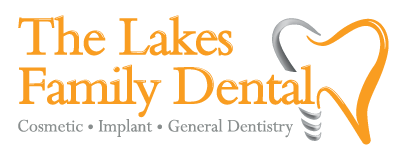What is Sleep Apnea?
What are the different types?
There are two types of sleep apnea: obstructive sleep apnea (OSA) and central sleep apnea (CSA). OSA is the more common of the two forms of sleep apnea. It is caused by a blockage of the airway, usually when the soft tissue in the back of the throat collapses during sleep. CSA occurs when the brain fails to signal the muscles to breath. This may be due to instability in the respiratory control center.
Sleep apnea can affect anyone at any age, even children. Risk factors for sleep apnea include:
- Male gender
- Being overweight
- Over the age of 40
- Having a large neck size, that of 17 inches or greater in men and 16 inches or greater in women
- Having large tonsils, large tongue, or small jaw bone
- A familial history
- Gastroesophageal reflux disease (GERD)
- Nasal obstruction due to deviated septum, allergies, or sinus problems
What are the Signs of Sleep Apnea?
- Insomnia or difficulty sleeping
- Loud snoring
- Waking up at night short of breath
- Snorting or choking sounds during the night, which indicates a restart of breathing
- Headaches upon waking
- Falling asleep unintentionally during the day
- Extreme drowsiness during the day
Is Sleep Apnea Dangerous?
Sleep apnea is considered a serious medical problem. If left untreated, it can lead to high blood pressure and an increased risk for heart failure and stroke . The ongoing state of fatigue caused by this disease may lead to problems at school or work as well as danger when driving or operating heavy machinery. Sleep apnea can also cause complications with medications or surgery.
How to Treat Sleep Apnea
Sleep apnea treatments vary depending on the severity of each patient’s case and the type of apnea involved. Basic treatments may simply be behavioral and include losing weight, smoking cessation, or sleeping on the side rather than the back. If these treatments fail to work, however, oral devices can be used to position the mouth in such a way that it prevents throat blockage. In severe cases, surgery is often the best option for sleep apnea treatment.
Sleep apnea is a very serious condition that can have harmful effects on your health. Contact us today to schedule your consultation if you are noticing any of the signs of sleep apnea.
Can't Call Us Now?
Sleep Apnea Page
Frequently Asked Questions About Sleep Apnea
How Can a Dentist Help With Sleep Apnea?
While sleep apnea is commonly treated by medical professionals, dentists can also play a crucial role. At The Lakes Family Dental, we offer custom oral appliances, such as MYTAP and TAP 3, to help manage obstructive sleep apnea (OSA). These devices reposition the jaw to keep the airway open while sleeping, offering an effective treatment for many patients with mild to moderate sleep apnea. Dentists work in collaboration with physicians to provide a comprehensive treatment plan, ensuring the most suitable approach for your needs. In some cases, dentists may help with pre-treatment assessments to monitor and reduce the severity of the condition before it progresses further.
Can Sleep Apnea Be Treated Without Surgery?
Yes, surgery is not always necessary for sleep apnea. For many people, non-surgical treatments like oral appliances, lifestyle changes, and CPAP therapy are effective. Weight loss, avoiding alcohol and sedatives, and sleeping on your side can also help manage sleep apnea symptoms. If you’re seeking a non-invasive option, an oral appliance may be an ideal solution to consider. For those who prefer a more natural approach, these treatments can significantly improve their quality of life. Even a combination of simple lifestyle changes, such as quitting smoking and maintaining a regular sleep schedule, can greatly reduce sleep apnea symptoms.
Is Sleep Apnea Only a Problem for Older Adults?
No, sleep apnea can affect individuals of any age, even children. Risk factors like obesity, large tonsils, and a small jawbone can increase the chances of developing sleep apnea at any age. It’s important to recognize the signs early to ensure proper treatment and avoid complications. In children, sleep apnea is often related to enlarged tonsils or adenoids, and they might experience more frequent breathing interruptions during sleep. Parents should look out for signs such as loud snoring, bedwetting, and daytime drowsiness, which could indicate the presence of sleep apnea.
How Do I Know if I Need an Oral Appliance for Sleep Apnea?
If you’ve been diagnosed with mild to moderate obstructive sleep apnea (OSA), an oral appliance may be a good solution. Your dentist will assess your symptoms and, in collaboration with your doctor, determine if an oral appliance like MYTAP or TAP 3 is right for you. These devices are effective in keeping your airway open by repositioning the lower jaw. A dentist experienced in sleep apnea treatment will also be able to evaluate the structure of your jaw and mouth to ensure that the device fits comfortably and provides the necessary support throughout the night.
How Effective Are Oral Appliances for Treating Sleep Apnea?
Oral appliances, such as the MYTAP and TAP 3, are highly effective for many patients with mild to moderate sleep apnea. They are designed to reposition the jaw and prevent airway blockage during sleep. While they may not be a suitable option for severe cases, many patients report improved sleep quality, reduced snoring, and better overall health when using oral appliances. Oral appliances are a popular alternative for individuals who find CPAP machines uncomfortable or cumbersome. They are small, portable, and easy to use, providing patients with more flexibility when managing their condition.
What Are the Risks of Untreated Sleep Apnea?
Untreated sleep apnea can lead to serious health complications, including high blood pressure, heart disease, stroke, diabetes, and an increased risk of accidents due to excessive daytime sleepiness. It can also impact your mental health, leading to issues like anxiety, depression, and poor concentration. Seeking treatment is an essential part of reducing these risks and improving your overall quality of life. Chronic sleep deprivation, a result of untreated sleep apnea, also compromises your immune system, making you more susceptible to infections and illnesses. Early intervention is key in preventing long-term damage.
Can Sleep Apnea Treatment Help Improve My Quality of Life?
Yes, effective treatment of sleep apnea can significantly improve your quality of life. By restoring healthy sleep patterns, treatments can help reduce daytime fatigue, improve cognitive function, and lower the risks associated with untreated sleep apnea. You may also experience fewer headaches, improved mood, and a lower risk of heart-related complications. Proper treatment has been shown to improve overall well-being, enhance work and school performance, and restore a positive outlook on life. Better sleep contributes to improved emotional health, increased physical energy, and enhanced productivity during the day.
How Do I Get Tested for Sleep Apnea?
Sleep apnea is diagnosed through a sleep study, which may involve an overnight stay in a sleep clinic or a home sleep test. During the study, various factors, including your breathing, heart rate, and oxygen levels, will be monitored. If you're experiencing symptoms of sleep apnea, your dentist or physician can refer you for a sleep study to determine the severity of the condition. In some cases, at-home testing devices are available, making it easier for patients to receive a diagnosis in the comfort of their own home. The results of the study will guide the treatment options that best fit your needs.
Are There Any Lifestyle Changes That Can Help Manage Sleep Apnea?
Yes, certain lifestyle changes can help reduce the severity of sleep apnea. These include:
- Losing weight if you are overweight
- Sleeping on your side instead of your back
- Avoiding alcohol and sedatives before bed
- Quitting smoking
- Exercising regularly to improve overall health and reduce the risk of sleep apnea
- Establishing a consistent sleep schedule to help your body get adequate rest.
These changes can complement other treatments, such as oral appliances or CPAP therapy. Even small changes in behavior can lead to noticeable improvements in sleep apnea symptoms, resulting in a better night's sleep and a more energized morning.
How Can I Schedule a Sleep Apnea Consultation?
If you’re noticing any signs of sleep apnea, such as loud snoring or daytime fatigue, contact The Lakes Family Dental for a consultation. Dr. Alvarado and our team can evaluate your symptoms and discuss your treatment options, including the use of oral appliances to help manage your condition. For patients experiencing sleep apnea in Edinburg, TX, we are here to support you in your sleep apnea journey. Schedule your consultation today and take the first step towards better sleep. We provide personalized care to help you breathe easier and sleep better.


